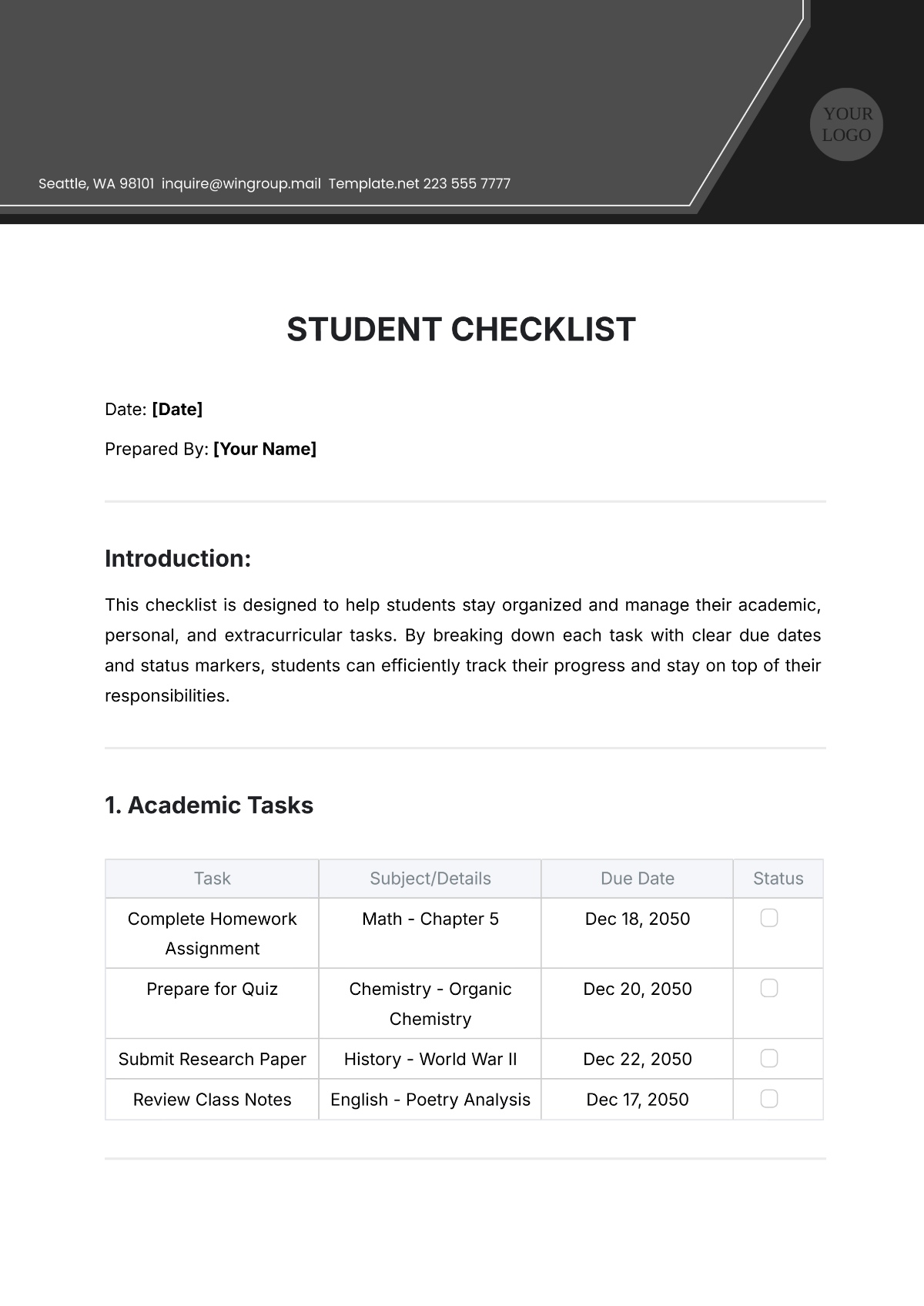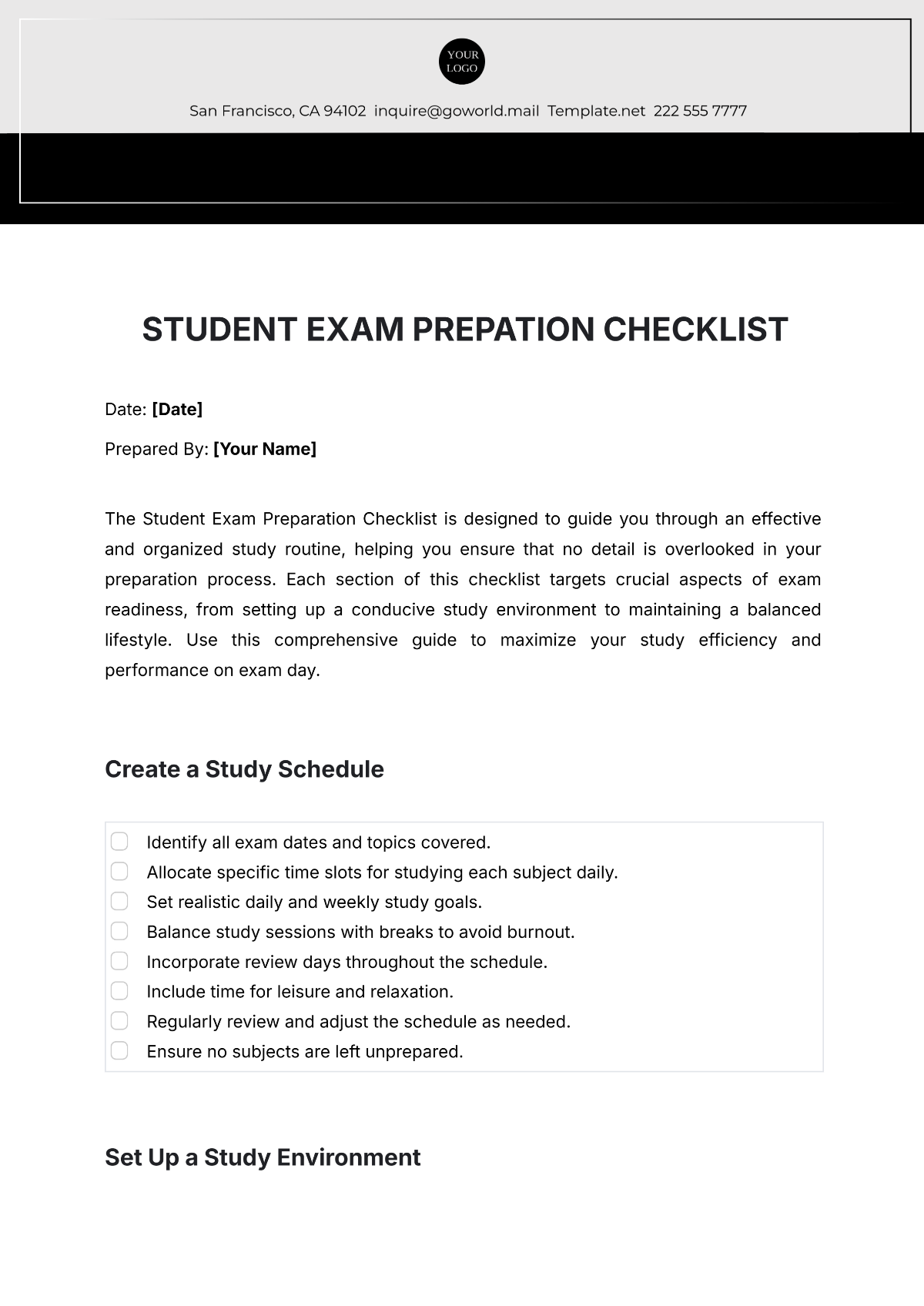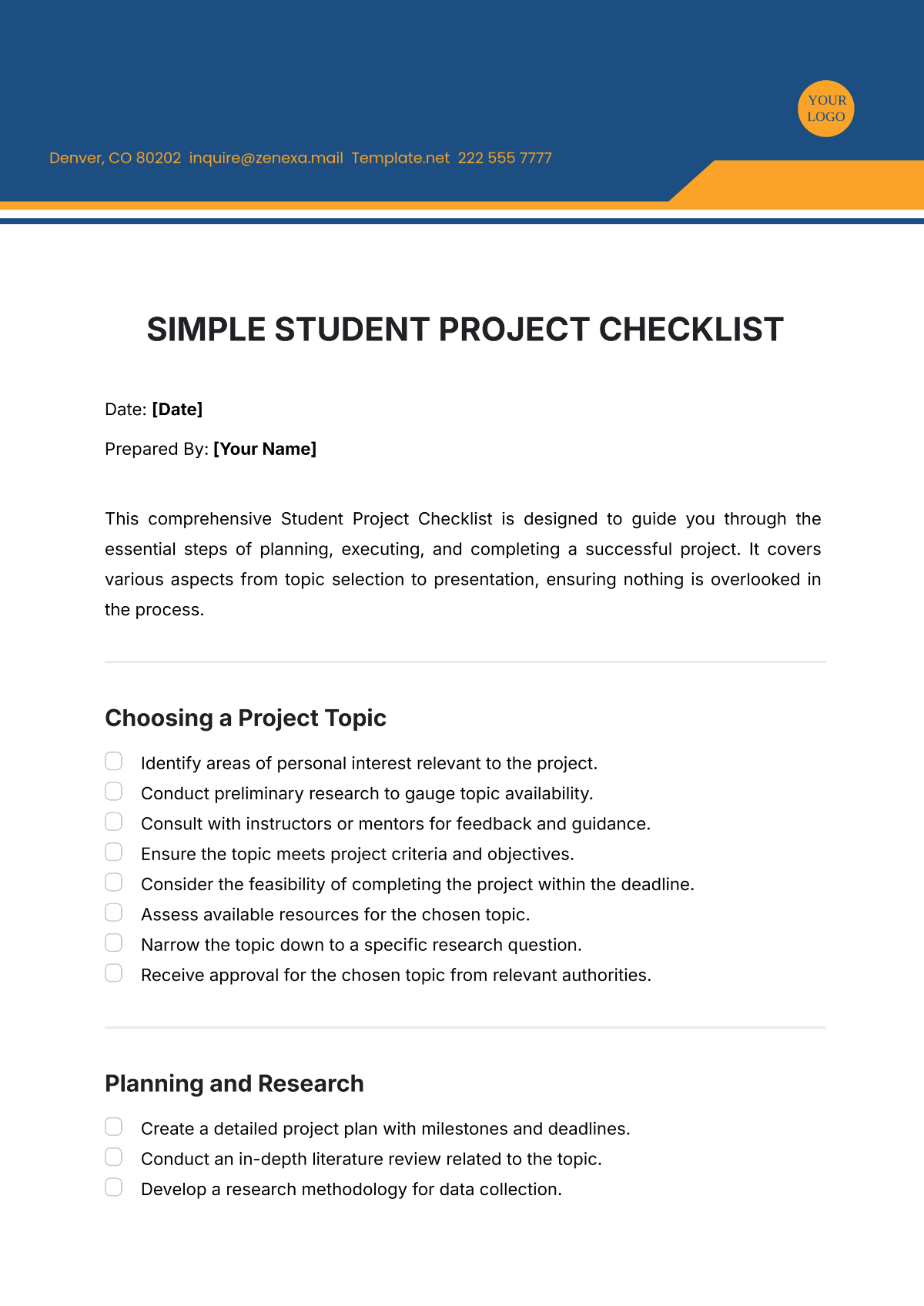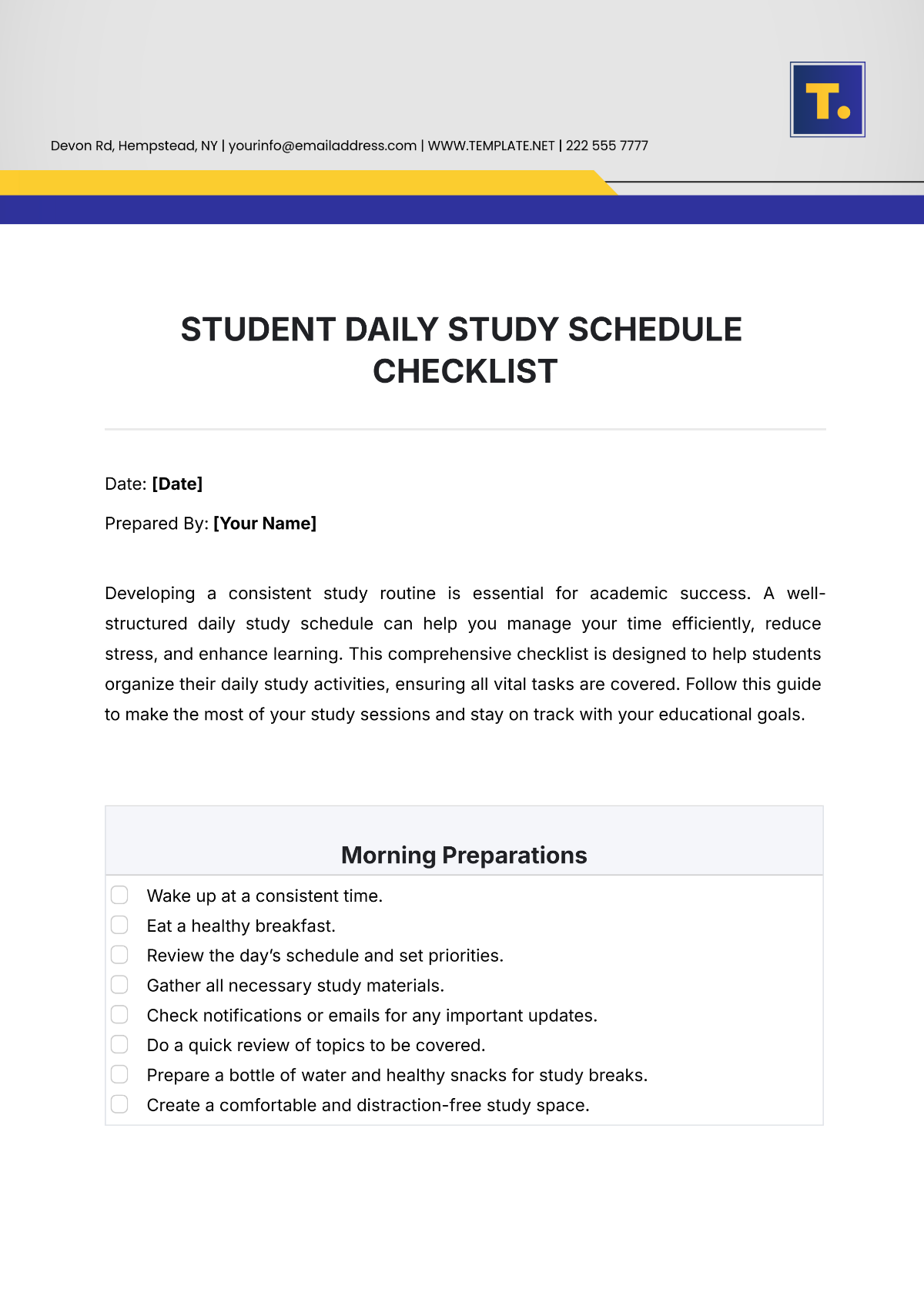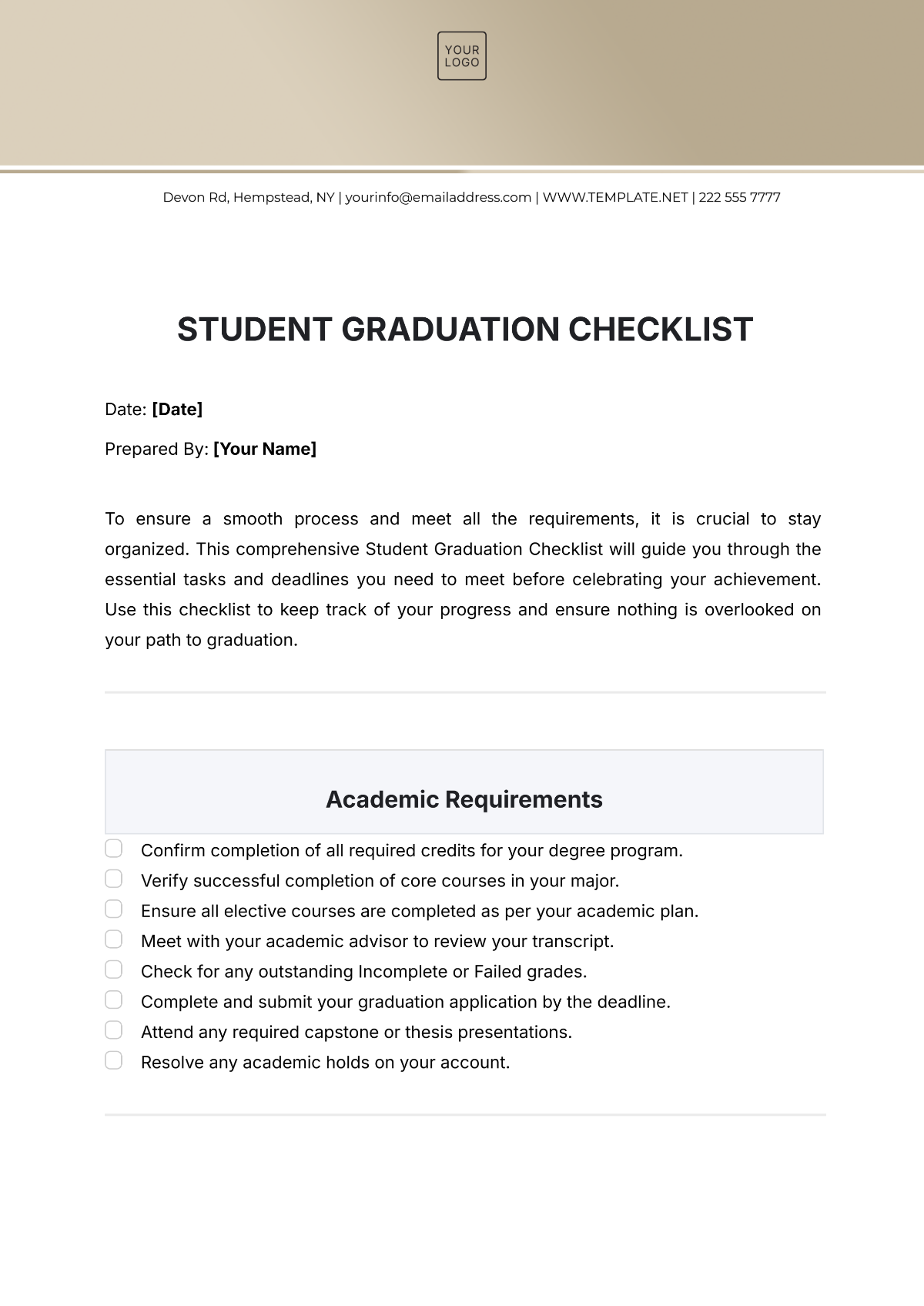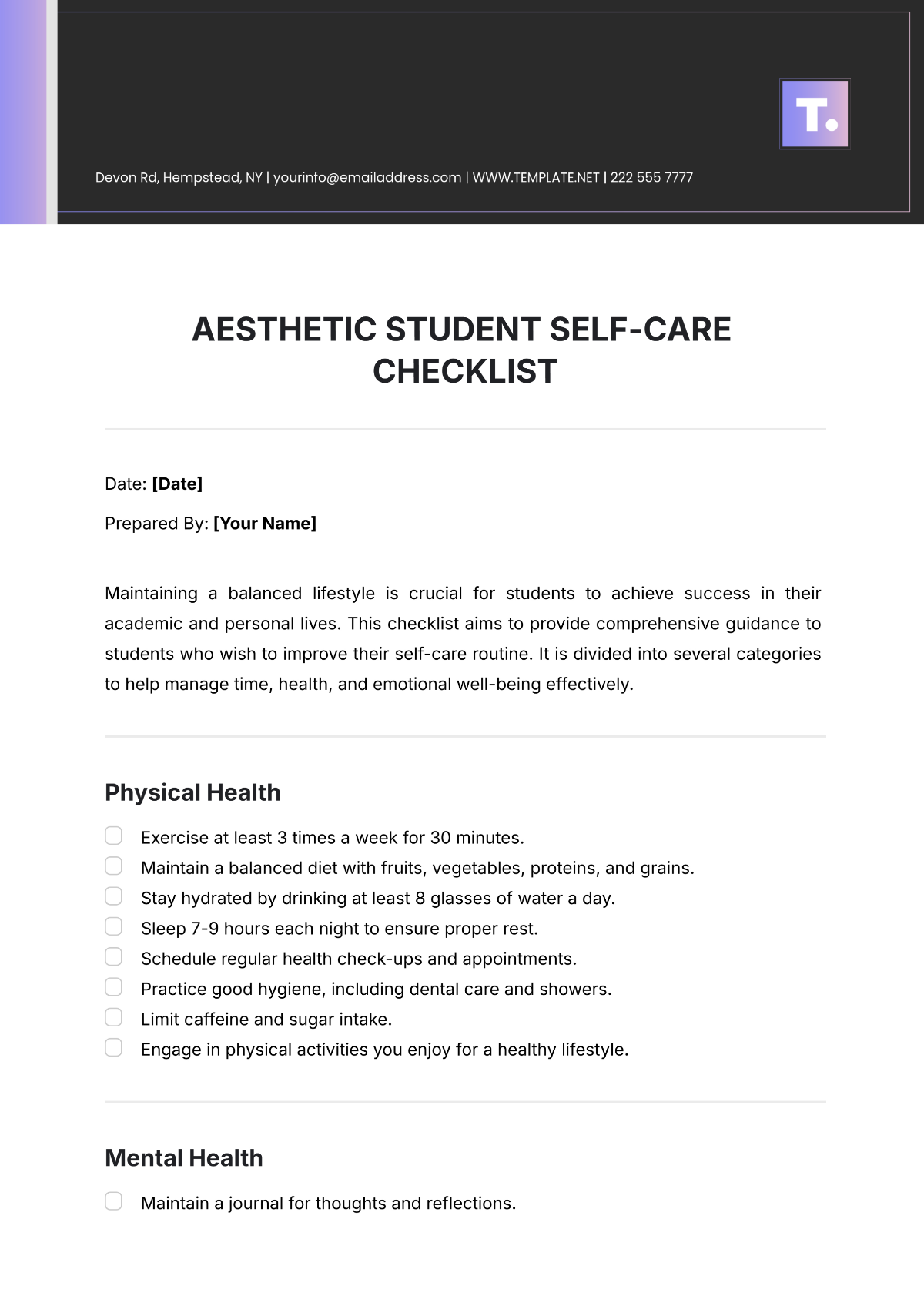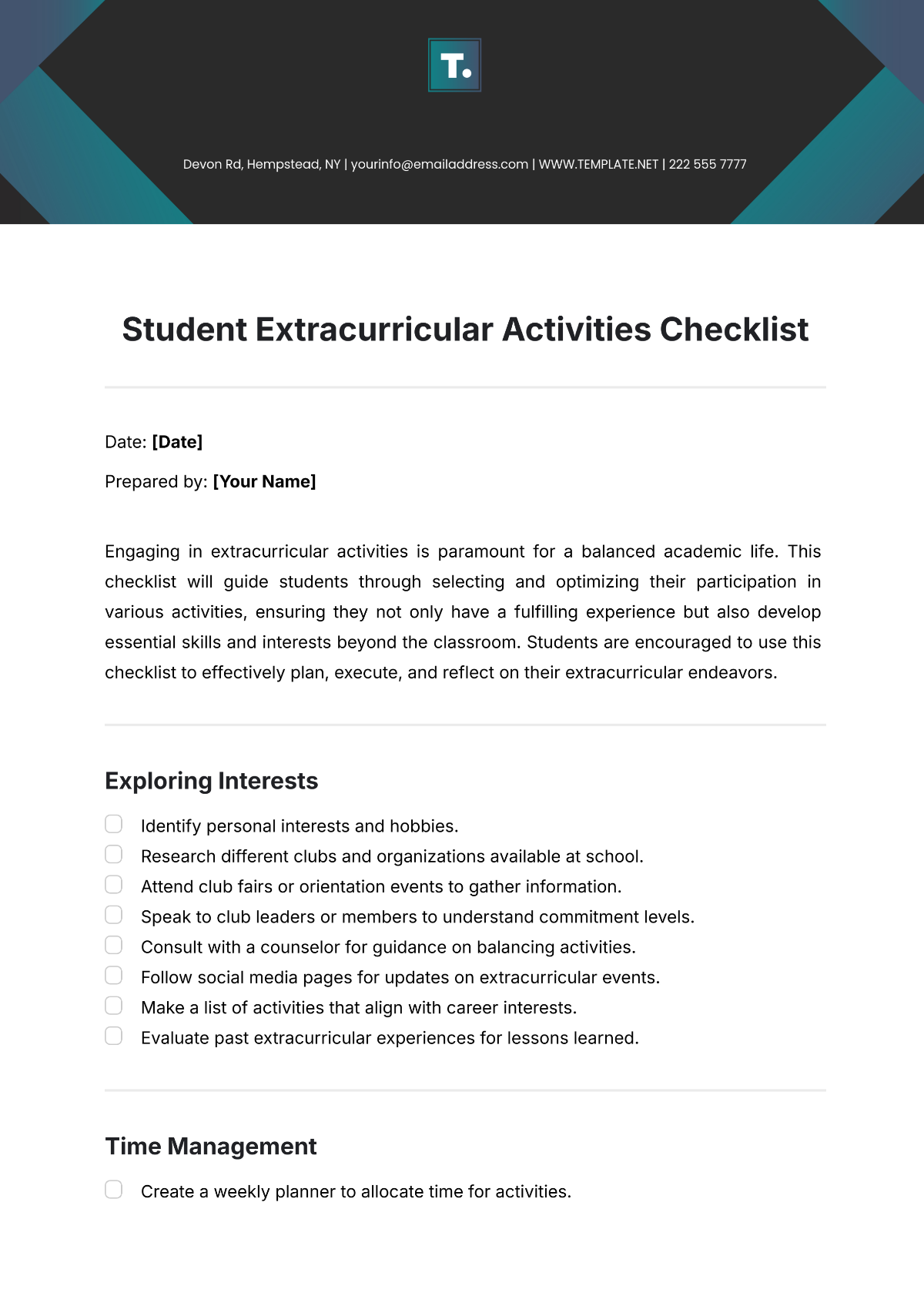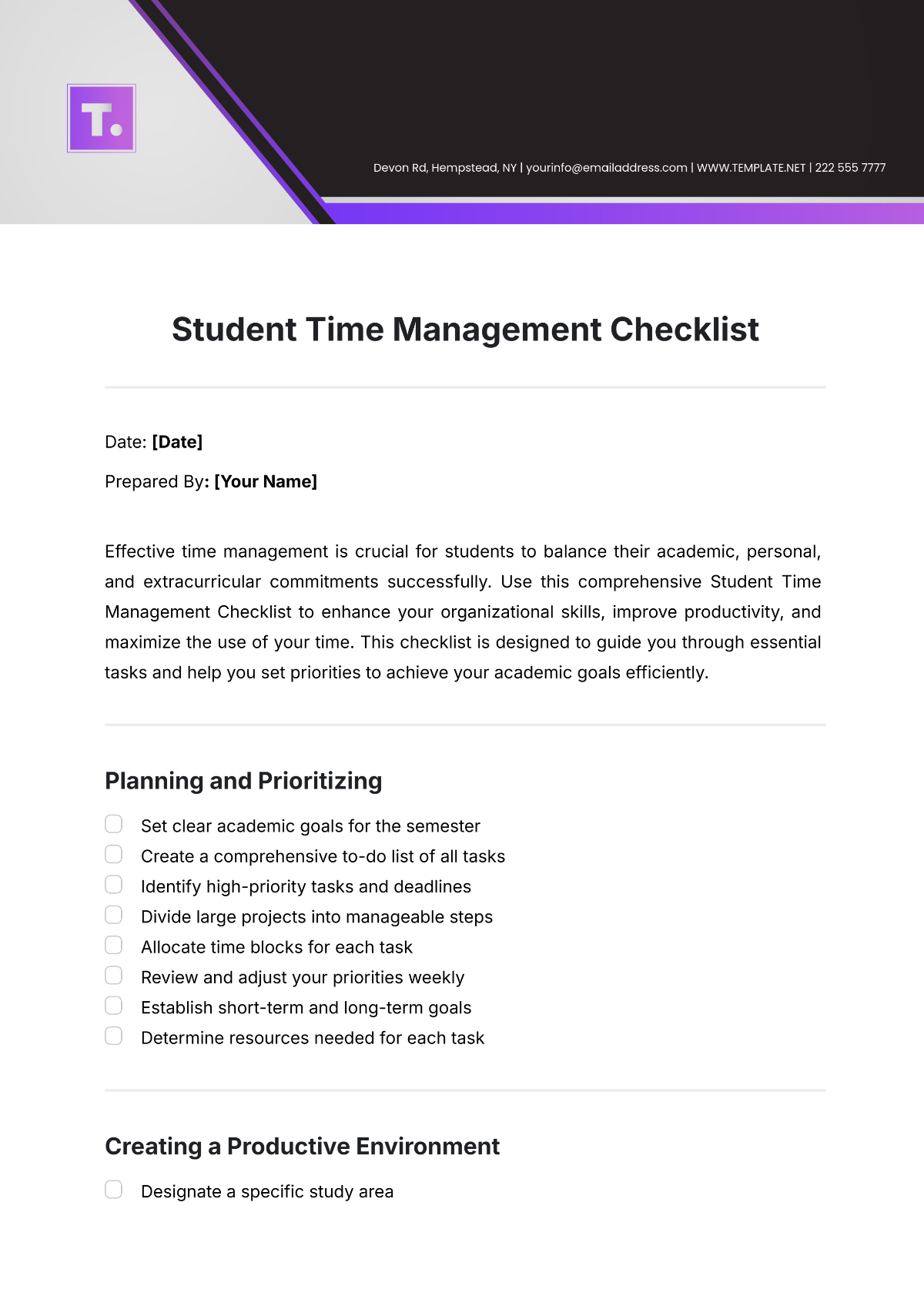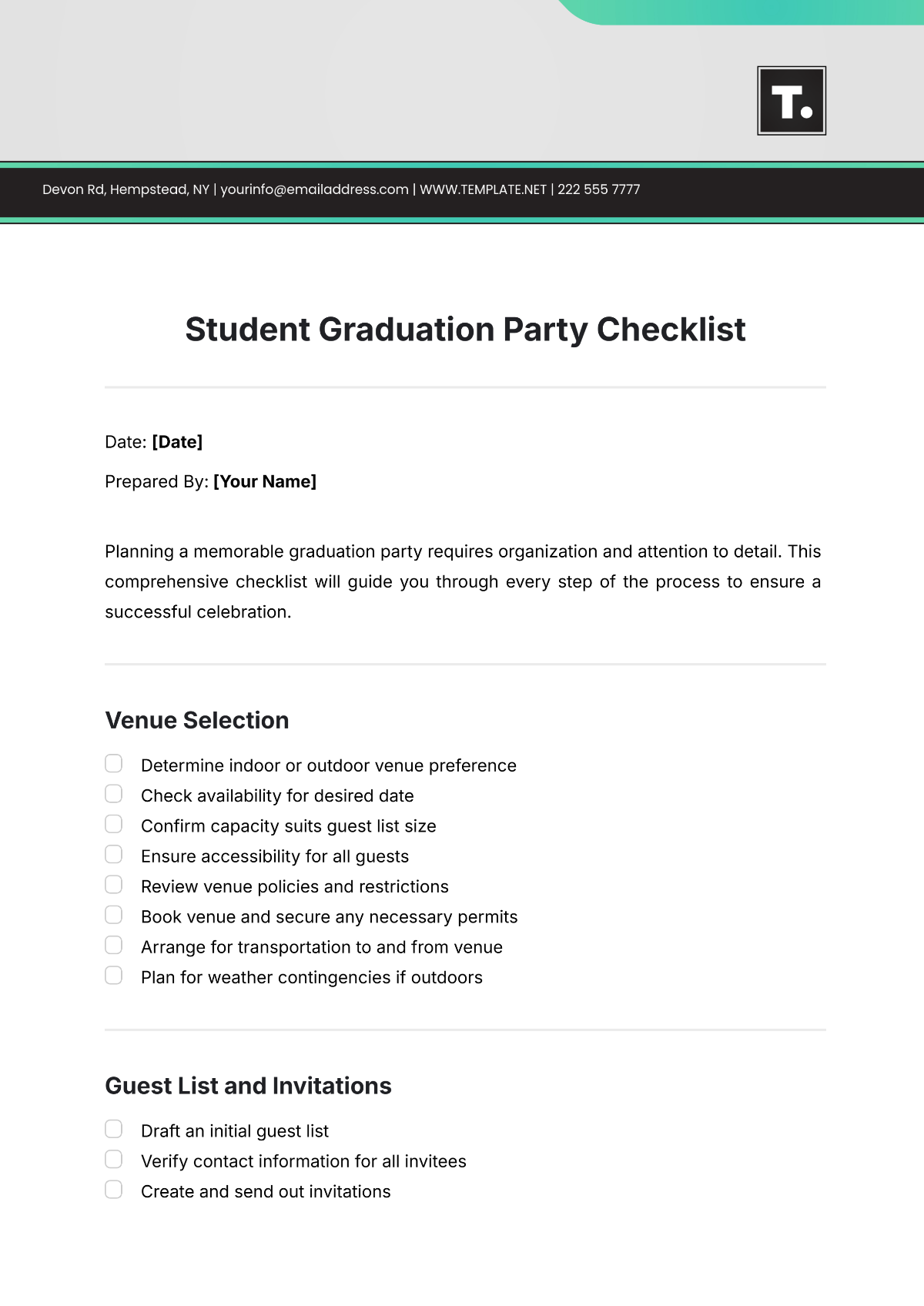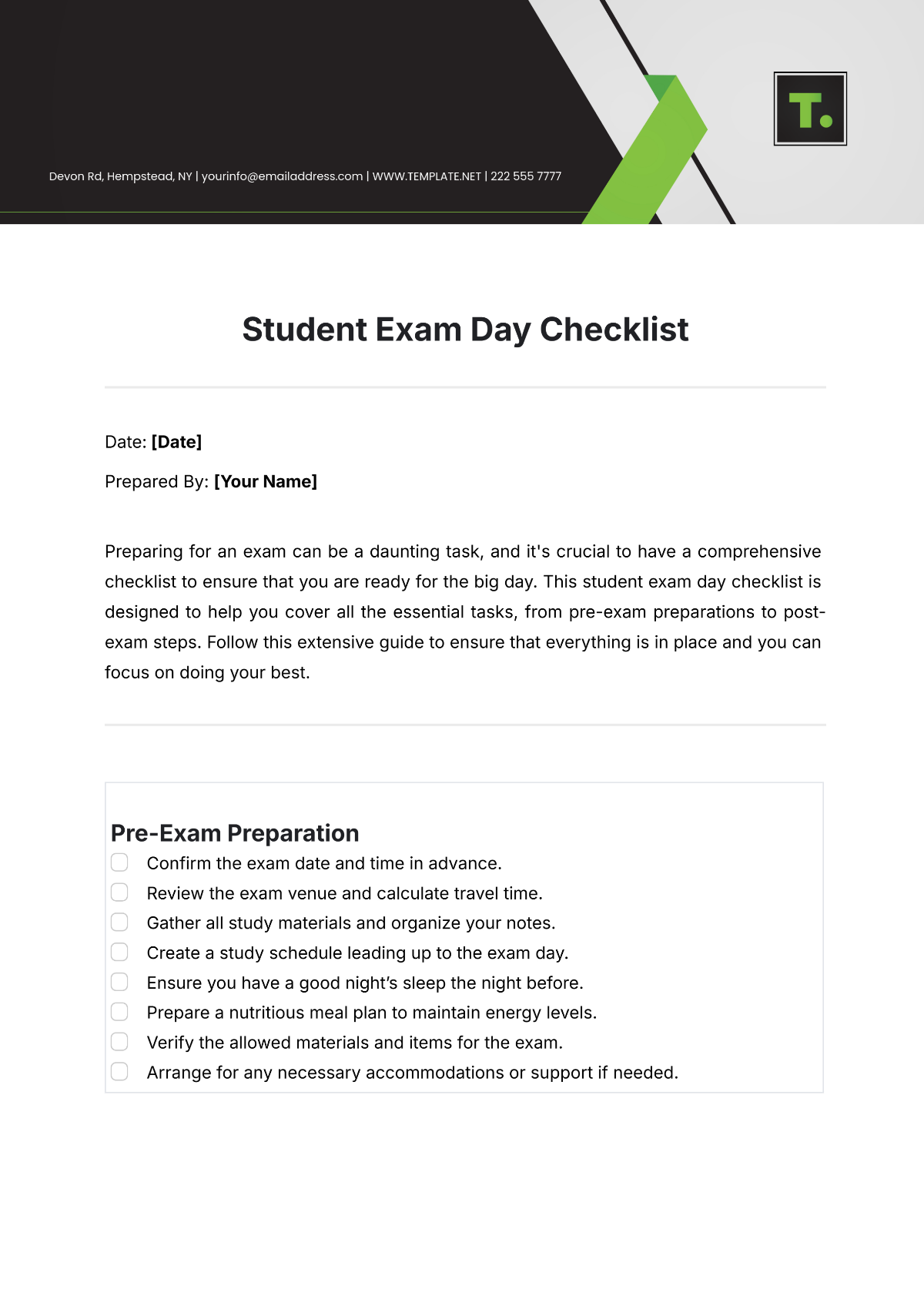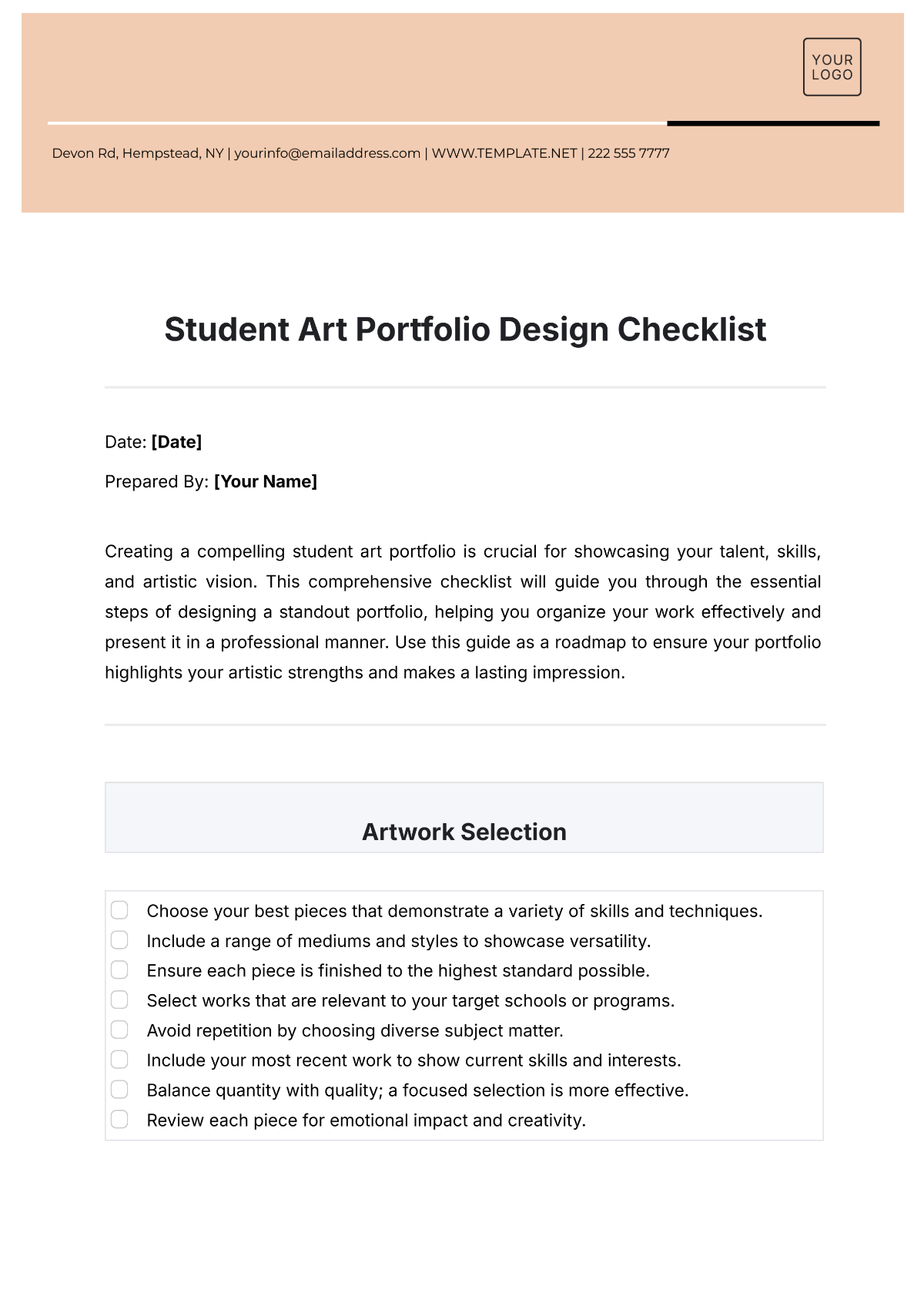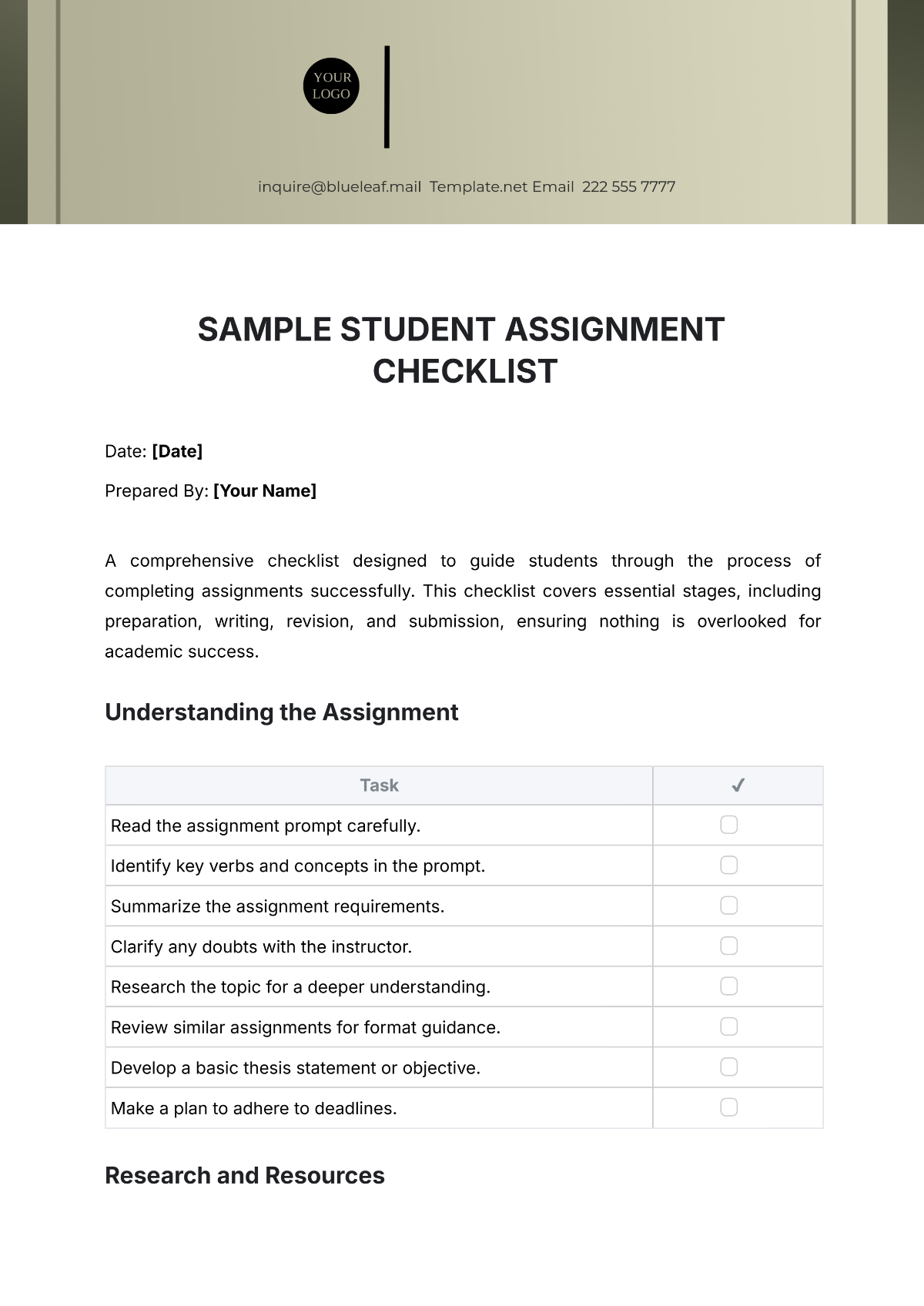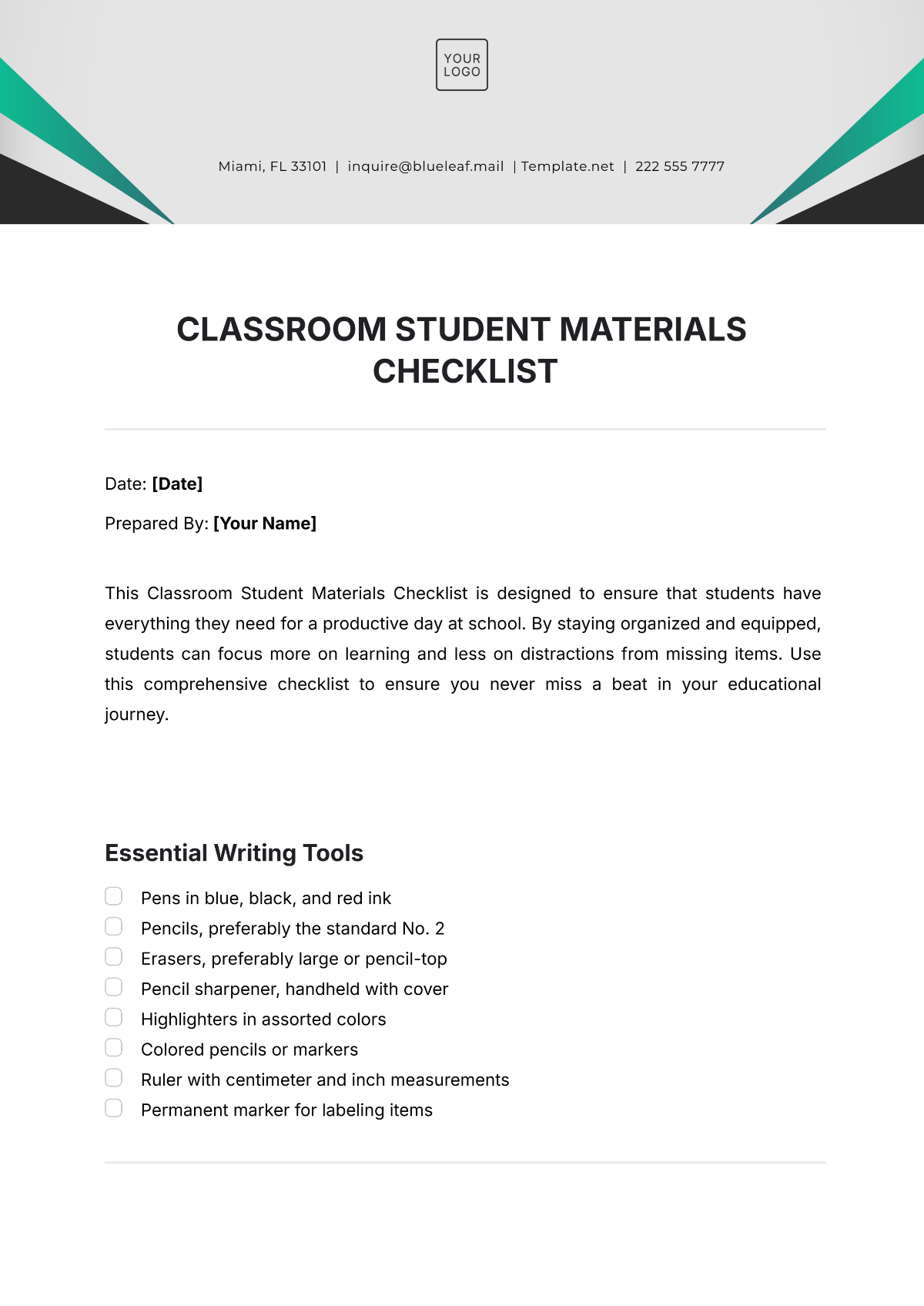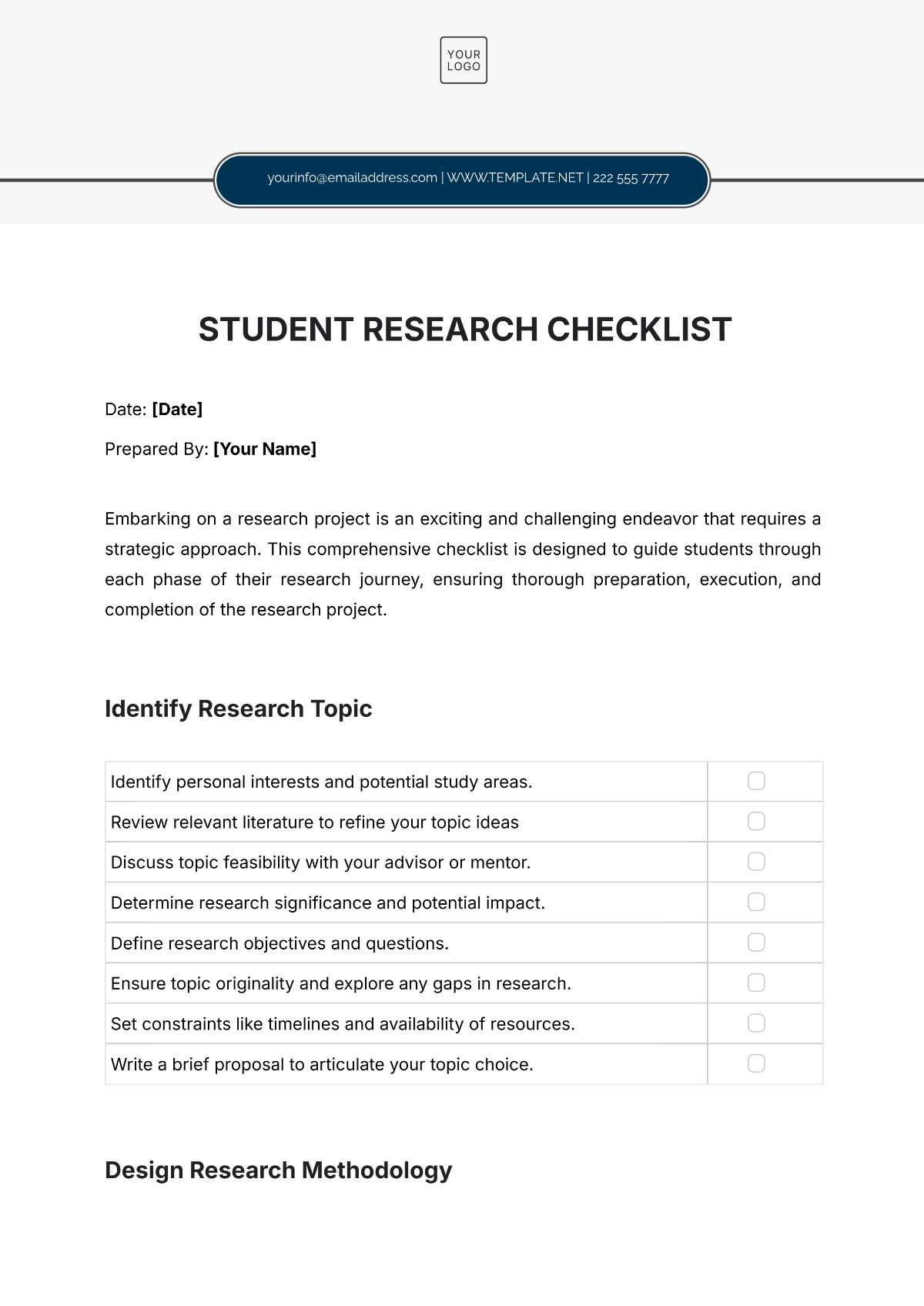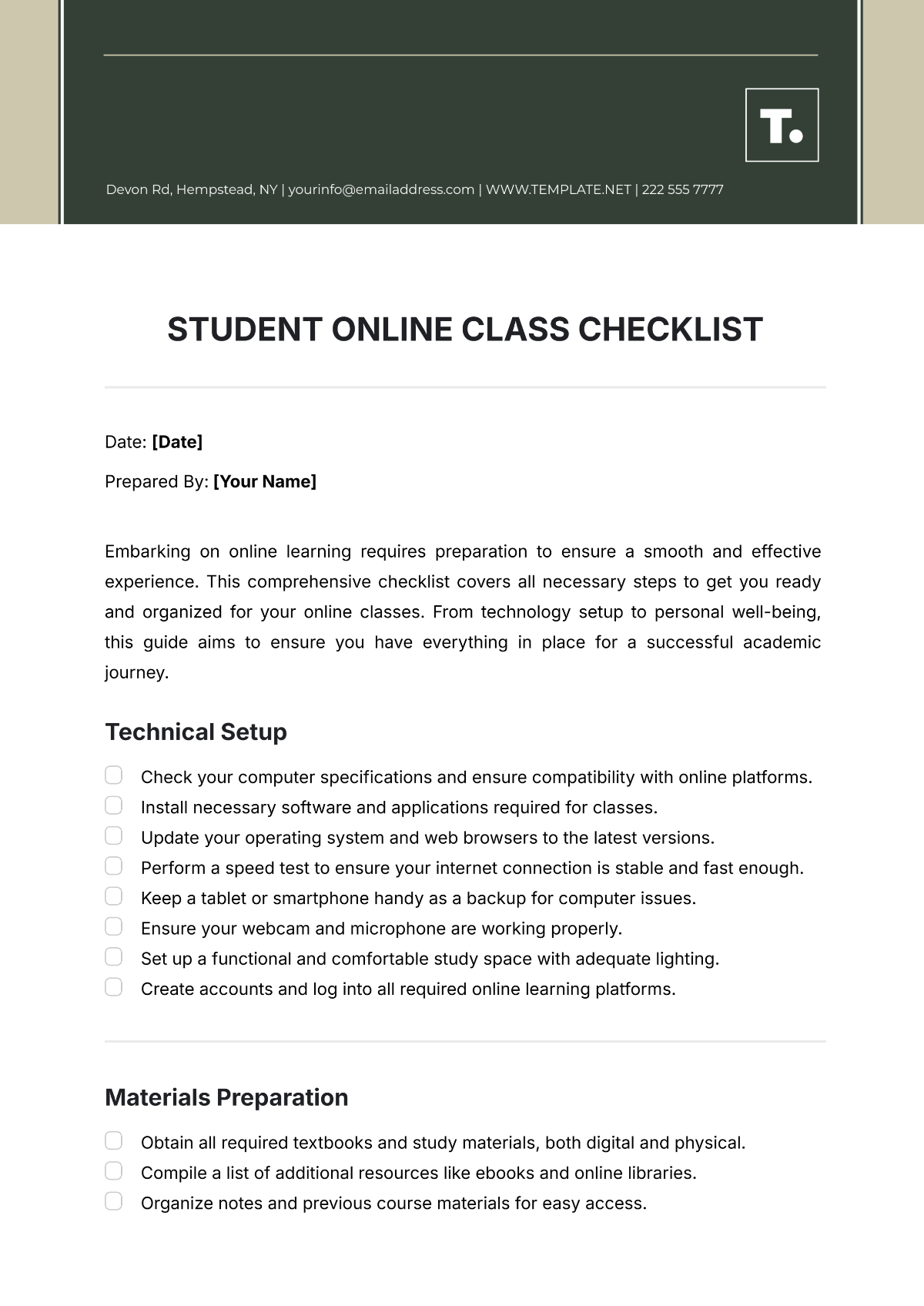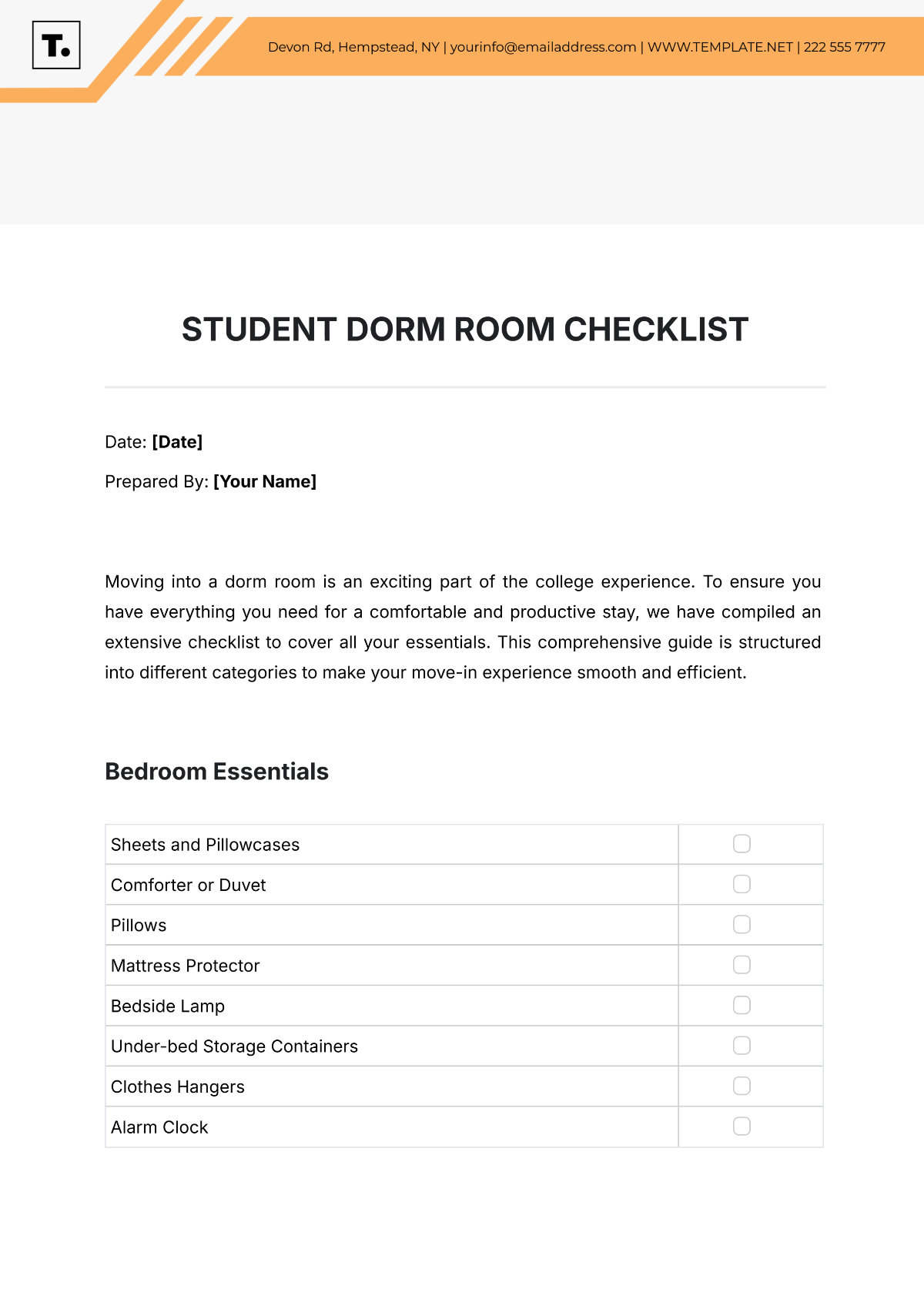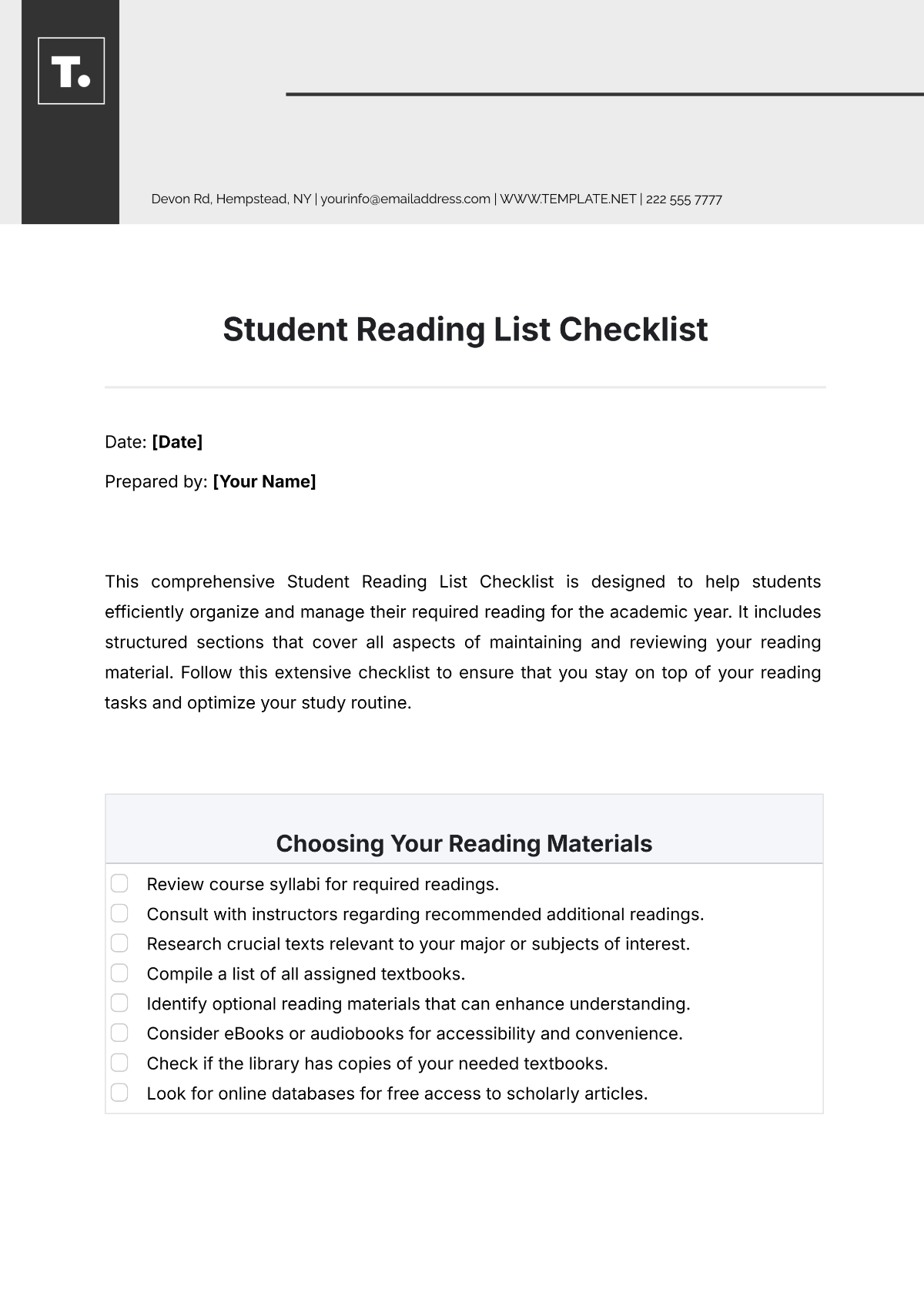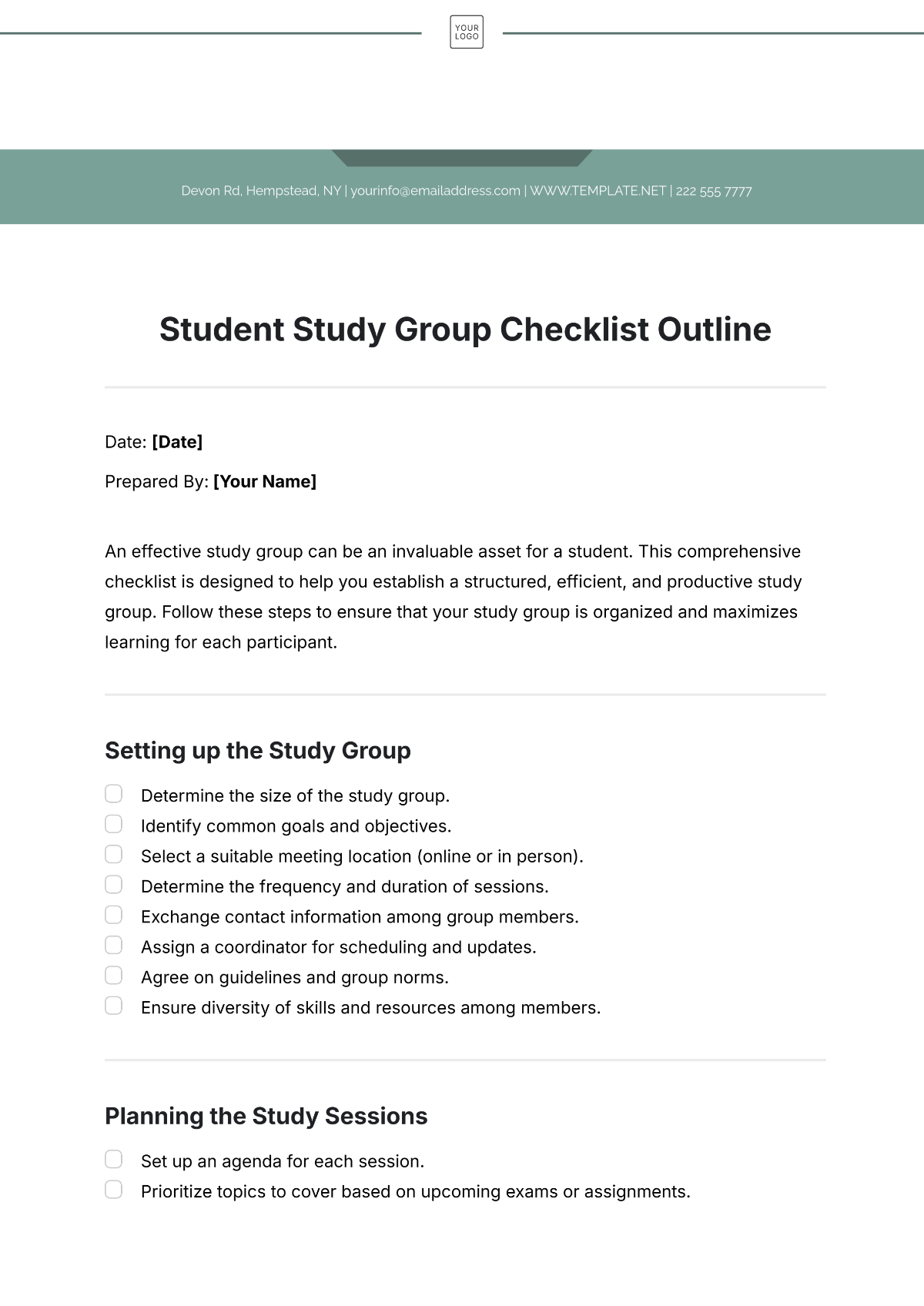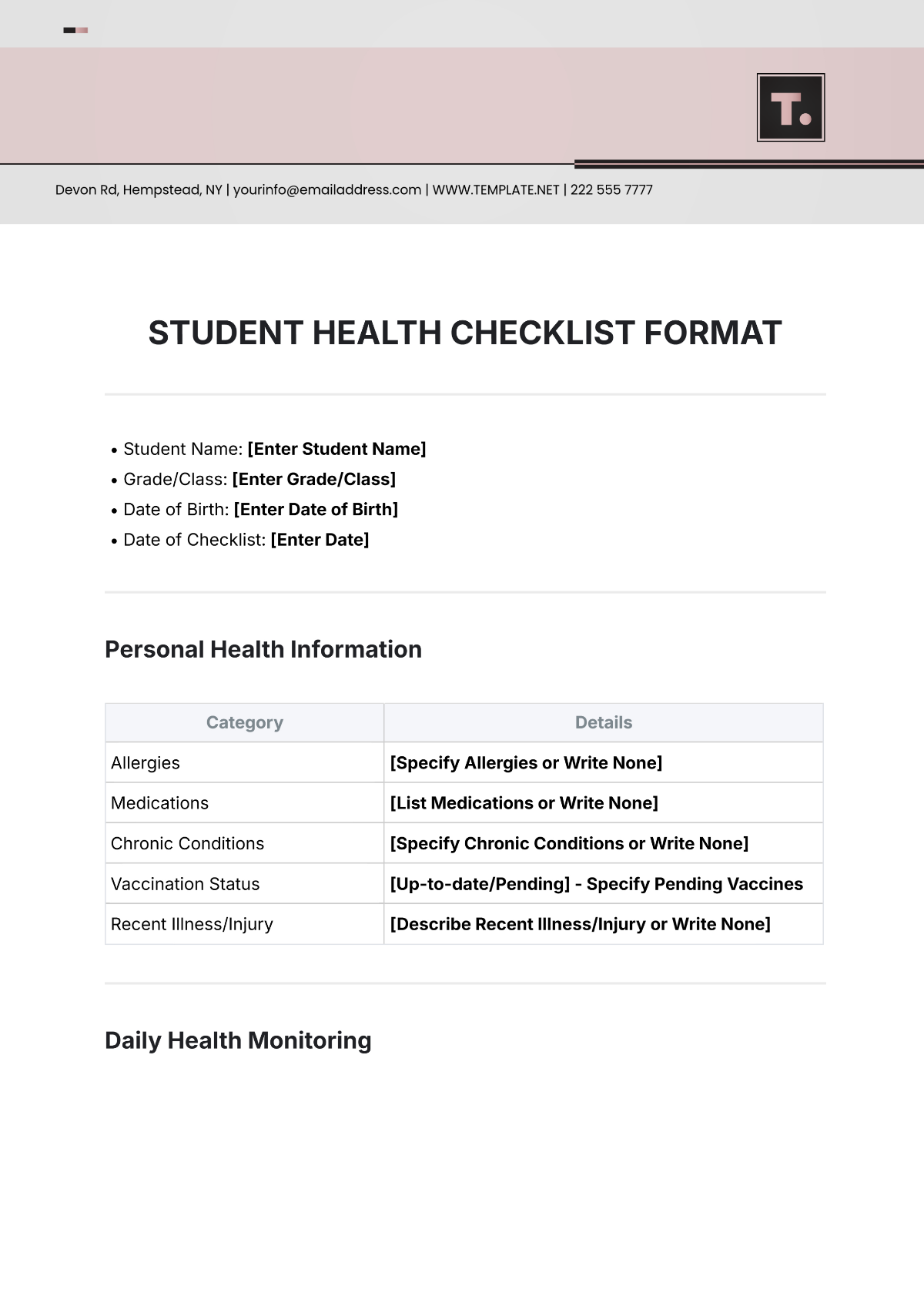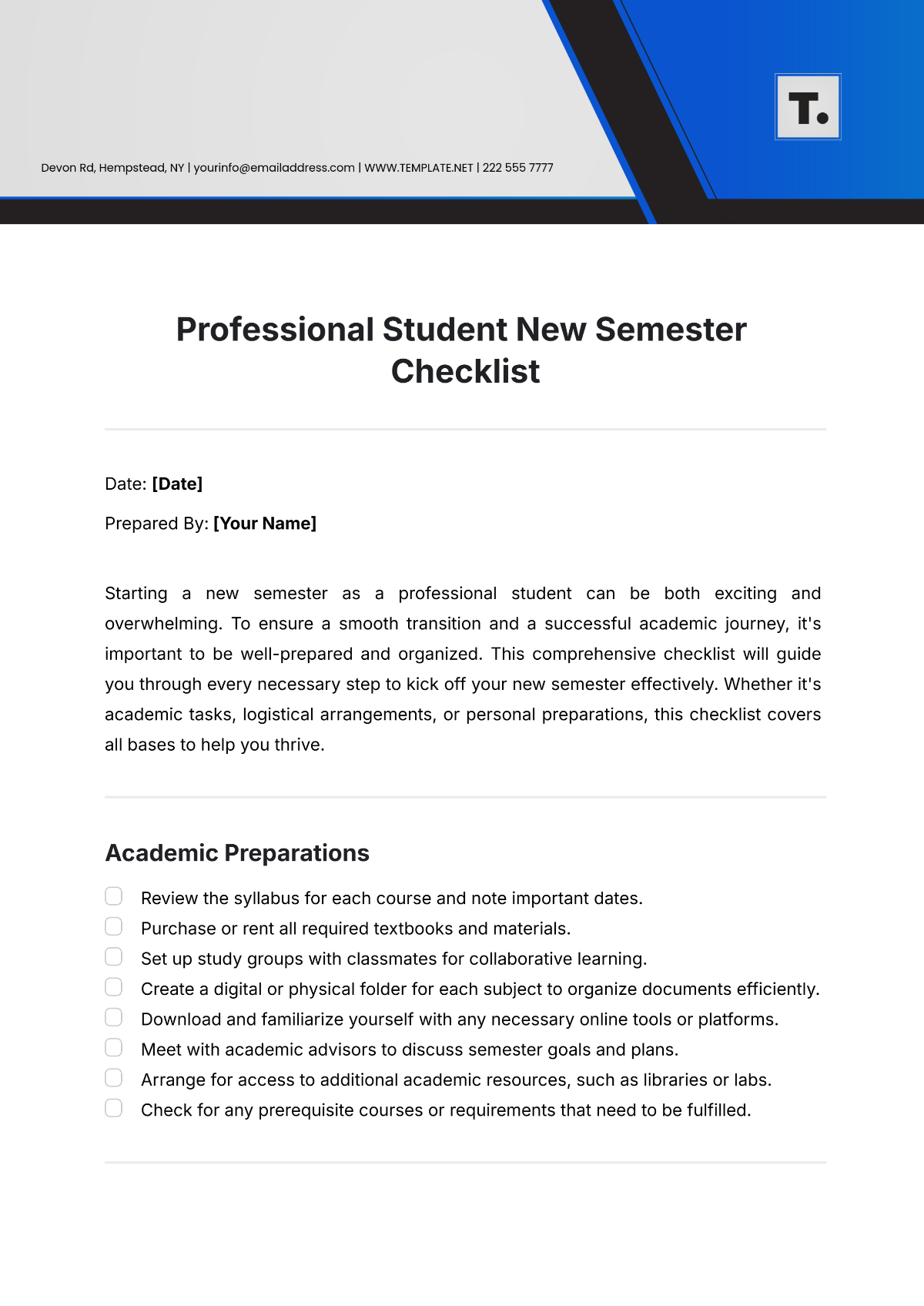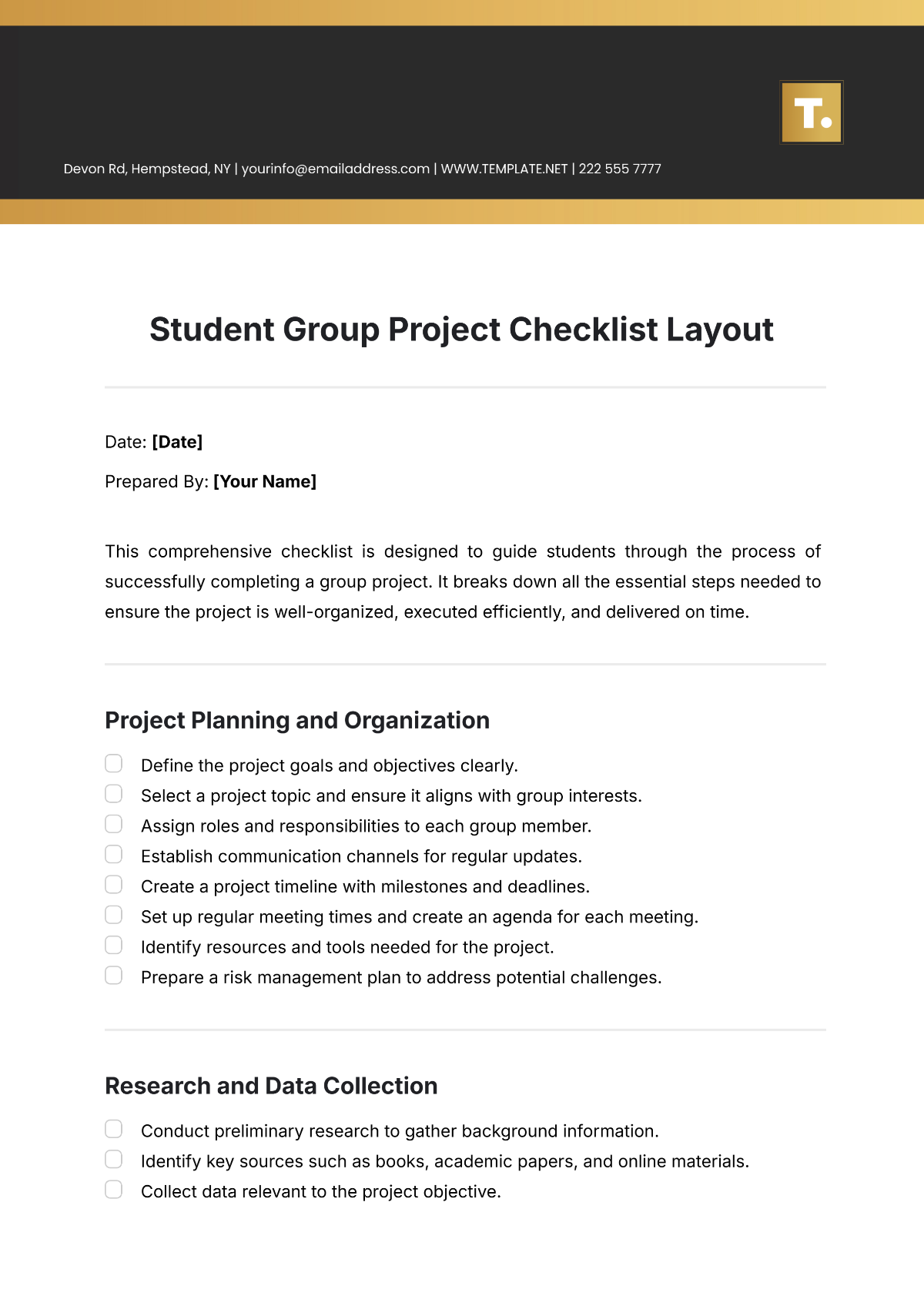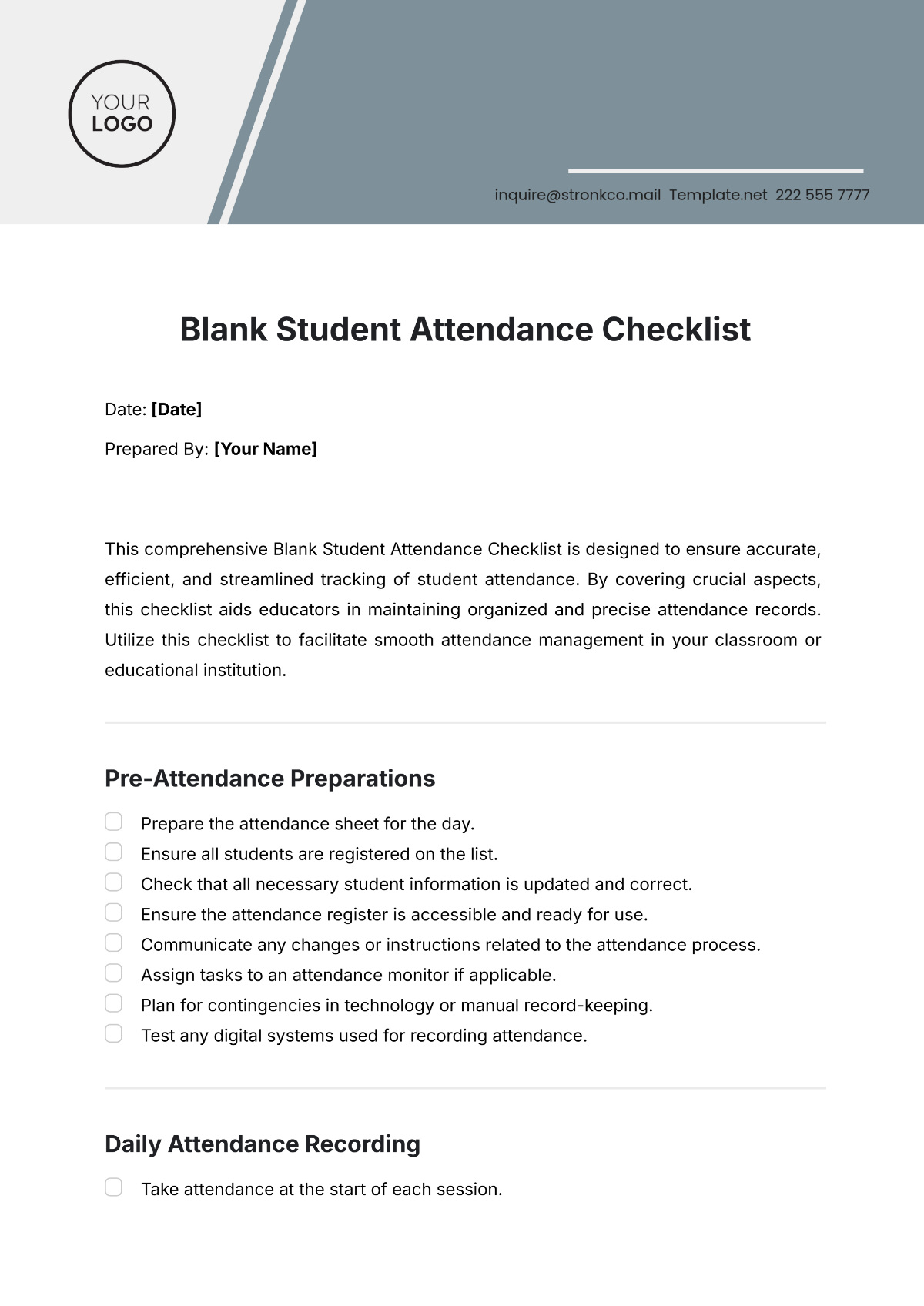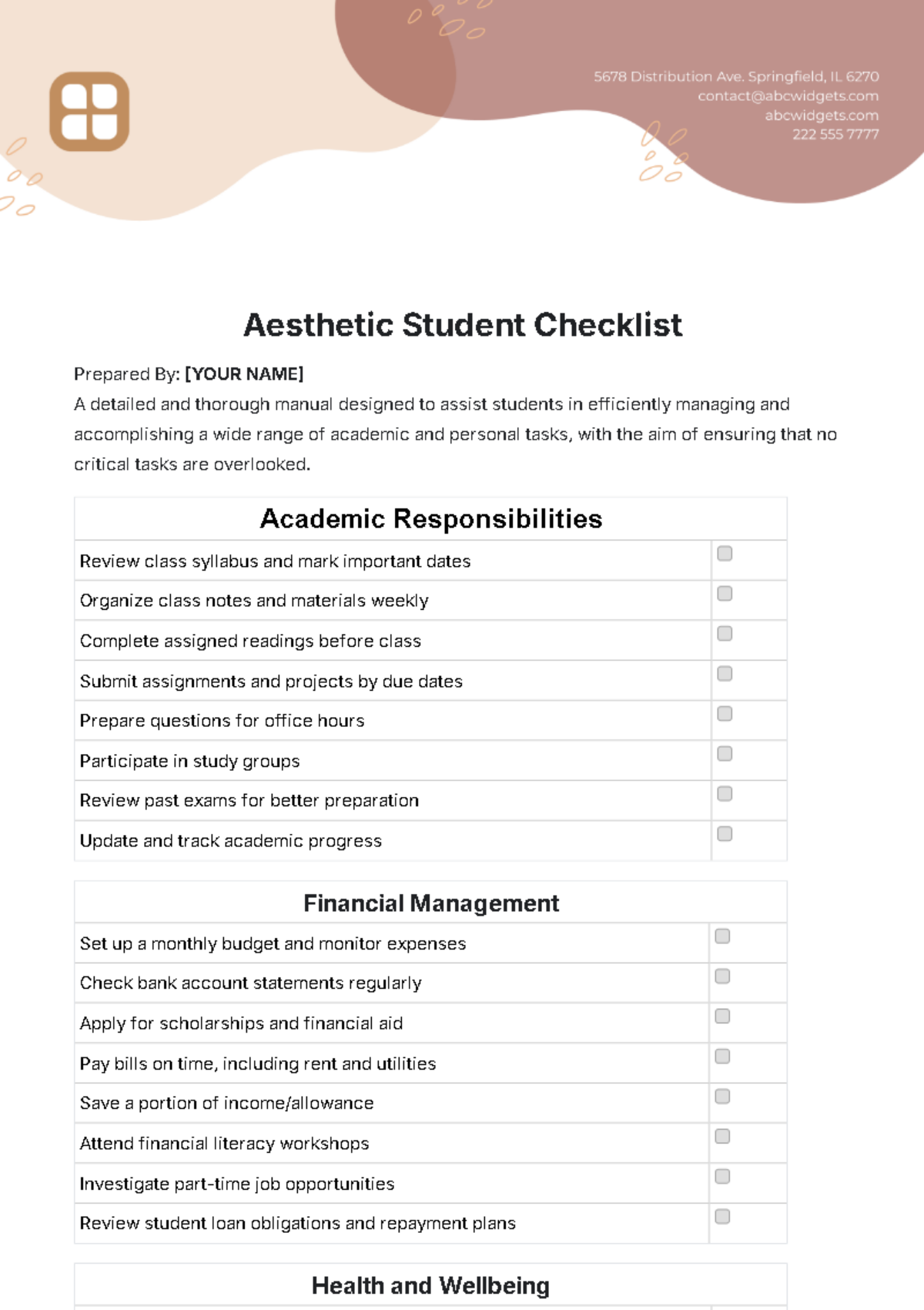Free Student Study Group Checklist Outline Template
Student Study Group Checklist Outline
Date: [Date]
Prepared By: [Your Name]
An effective study group can be an invaluable asset for a student. This comprehensive checklist is designed to help you establish a structured, efficient, and productive study group. Follow these steps to ensure that your study group is organized and maximizes learning for each participant.
Setting up the Study Group
Determine the size of the study group.
Identify common goals and objectives.
Select a suitable meeting location (online or in person).
Determine the frequency and duration of sessions.
Exchange contact information among group members.
Assign a coordinator for scheduling and updates.
Agree on guidelines and group norms.
Ensure diversity of skills and resources among members.
Planning the Study Sessions
Set up an agenda for each session.
Prioritize topics to cover based on upcoming exams or assignments.
Divide work and designate discussion leaders per topic.
Ensure all members have access to the necessary study materials.
Integrate diverse study techniques (e.g., quizzes, flashcards, etc.).
Allocate time for breaks and social interaction.
Evaluate learning styles and accommodate where possible.
Confirm availability of all members before each session.
Facilitating Effective Communication
Establish a clear line of communication (group chat or email).
Encourage open sharing of ideas and questions.
Create a schedule for regular updates and progress checks.
Practice active listening during discussions.
Resolve conflicts promptly and amicably.
Use collaborative tools to enhance communication.
Allocate specific times for feedback and suggestions.
Maintain respect and support among group members.
Maximizing Group Productivity
Establish short and long-term goals for the group.
Monitor progress and assess the effectiveness of sessions.
Discuss best practices and study methods regularly.
Limit distractions during study sessions.
Encourage individual accountability and responsibility.
Rotate leadership roles for diverse perspectives.
Adopt motivational strategies to keep members engaged.
Implement a reward system for achieving group targets.
Providing Academic Support
Share study aids and educational resources regularly.
Conduct peer teaching sessions for better understanding.
Encourage the use of tutors when needed.
Facilitate the sharing of notes and summaries.
Organize mock tests to simulate exam conditions.
Collect and discuss past exam papers.
Assist in clarifying difficult concepts through group discussions.
Utilize multimedia resources to enrich learning.
Evaluating Group Performance
Regularly assess the progress towards goals.
Gather feedback from group members on sessions.
Review and adjust study strategies as necessary.
Track attendance and participation of members.
Compare performance in individual and group settings.
Celebrate successes and achievements as a group.
Identify areas for improvement collectively.
Document successful techniques for future use.
Maintaining Group Longevity
Ensure commitment from all group members.
Adapt to changes in academic schedules and priorities.
Refresh group dynamics by adding new members if needed.
Regularly revisit and update group goals.
Invest in the personal development of members.
Foster a supportive and encouraging environment.
Encourage continuous reflection and self-improvement.
Host social activities to strengthen group bonds.
Additional Reminders
Remain flexible and adaptable to unforeseen changes.
Foster inclusivity and respect within the group.
Recognize and appreciate each member's contributions.
Stay updated on academic calendar and deadlines.
Encourage creativity in solving academic challenges.
Promote a culture of continuous learning and exploration.
Ensure that physical and mental well-being are prioritized.
